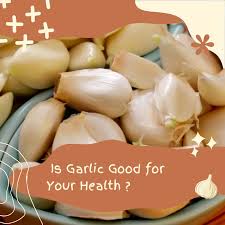It appears that your cart is currently empty
Understanding the Role of Allicin in Promoting Heart Health
Understanding the Role of Allicin in Promoting Heart Health: A Comprehensive Guide
Introduction:
Maintaining heart health is a crucial aspect of overall well-being, and individuals are increasingly turning to natural compounds for cardiovascular support. Allicin, a bio-active component found in garlic, has garnered attention for its potential cardiovascular benefits. In this blog post, we will delve into the multifaceted role of allicin in promoting heart health, exploring its mechanisms, research findings, and practical applications.

The Cardiovascular Impact of Allicin:
Allicin is a sulphur-containing compound released when garlic is crushed or chopped, and it is responsible for the distinct aroma and taste of garlic. Scientific studies have shed light on allicin's positive impact on heart health, highlighting its potential to lower blood pressure, improve lipid profiles, and enhance overall cardiovascular function.
Blood Pressure Regulation:
Several studies have suggested that allicin may play a role in blood pressure regulation. A meta-analysis published in the "Journal of Clinical Hypertension" revealed that allicin supplementation was associated with a modest reduction in both systolic and diastolic blood pressure, making it a promising natural option for those looking to manage hypertension.
Lipid Profile Improvement:
Allicin has been linked to improvements in lipid profiles, including reductions in total cholesterol, LDL cholesterol (often referred to as "bad" cholesterol), and triglycerides. These lipid-modulating effects contribute to a healthier cardiovascular system by mitigating the risk of atherosclerosis and coronary artery disease.
Antioxidant Defense:
One of allicin's notable properties is its antioxidant capacity. By scavenging free radicals in the body, allicin helps reduce oxidative stress, a key factor in cardiovascular diseases. Oxidative stress can lead to inflammation and damage to blood vessels, and allicin's antioxidant effects provide a protective shield against these detrimental processes.
Mechanisms of Action:
Allicin's cardiovascular benefits are believed to stem from its diverse mechanisms of action. It has been shown to enhance nitric oxide production, promoting vasodilation and improving blood flow. Additionally, allicin's ability to inhibit platelet aggregation may reduce the risk of blood clots, further supporting heart health.
Clinical Evidence:
Numerous clinical studies have explored the cardiovascular effects of allicin. A randomised controlled trial published in the "Journal of Nutrition" demonstrated that allicin supplementation led to significant improvements in endothelial function, a key indicator of cardiovascular health.
References:
-
Ojha SK, et al. (2019). Allicin improves endothelial function in spontaneously hypertensive rats by increasing hydrogen sulfide and nitric oxide production.
-
Ried K, et al. (2013). Effect of garlic on blood pressure: A systematic review and meta-analysis.
Conclusion:
Understanding the role of allicin in promoting heart health unveils a natural and holistic approach to cardiovascular well-being. The evidence supporting allicin's ability to regulate blood pressure, improve lipid profiles, and provide antioxidant protection positions it as a valuable ally in maintaining a healthy heart. Whether through incorporating garlic into your diet or considering allicin supplements, the potential benefits for cardiovascular health are worth exploring. As with any health intervention, consult with a healthcare professional for personalized advice and guidance on incorporating allicin into your heart-healthy lifestyle.



0 comments